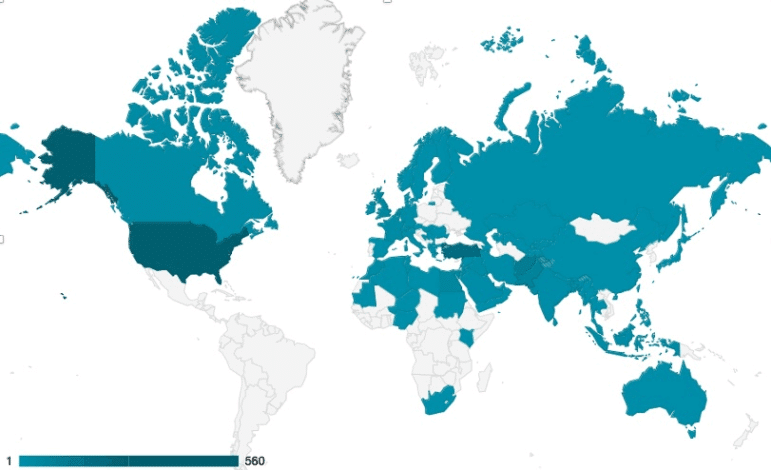The strength and effectiveness of Hollings Center programs derives from its unique blend of participants and partners. Since its inception in 2004, the Center has carefully crafted a balance of backgrounds and viewpoints for the promotion of better dialogue.
Our dialogues bring together a geographically significant group of participants and partners to build networks and promote cross-cultural understanding.

-
74 Countries
The Center strives for geographic variety in all of its programs to allow for greater cross-cultural opportunities and global solutions. This includes Muslim-majority and non-Muslim-majority alike.
-
39 U.S. States & Territories
The Center aims to have representatives from across the whole of the United States, not just major metropolitan areas. Participants have come from every major geographic region of the US.
Dialogue participants and partners represent a wide array of expertise and disciplines. This carefully crafted balance opens minds to new ideas and opportunities.
-
Universities
Participants include faculty, researchers, scholars, and students from universities and colleges around the world. The Center has partnered with many universities in the US, Türkiye, and the rest of the world.
-
Think Tanks
The Center has partnered with US and global think tanks to discuss matters of policy and analysis. The Center regularly includes fellows and experts from these organizations.
-
Non-Governmental Orgs.
Non-governmental organizations (NGOs) often provide on-the-ground connections to groups and individuals actively working to solve challenging issues. Furthermore, they help organize follow-on activities.
-
Government Representatives
The Center connects with representatives of government agencies and legislatures, as well as diplomats. Establishing these relationships can impact other dialogue efforts and policy discussions.
-
Business & Trade Orgs.
Public-private partnerships and the private sector can be major drivers of economic development. The Center engages business leaders and entrepreneurs to provide a difference of perspective.
-
Journalists & Media Outlets
Freedom of speech and accuracy of facts are critical to fostering dialogue. To enhance understanding the Center regularly engages journalists and media outlets for first-hand knowledge.
-
Next Generation
The Center believes engaging the next-generation of leaders and thinkers is critical to the long-term maintenance of dialogue. Many of the Center's programs focus on providing opportunities to this group.
-
Scientists & Scientific Orgs.
Too often, there is a disconnection between science and policy. As data and data collection becomes increasingly important to make policy decisions, the Center invites members of the scientific community into its programs.
What our participants and partners have to say about us...
There is no doubt that the Hollings Center methodology is effective. A recent survey of past Hollings Center participants showed that over 90% of respondents are highly satisfied with the strength of the format and the quality of the discussion. Almost all participants responding to the survey report continued contact with their fellow dialogue participants. Hear directly from participants themselves what they have to say about our programs: